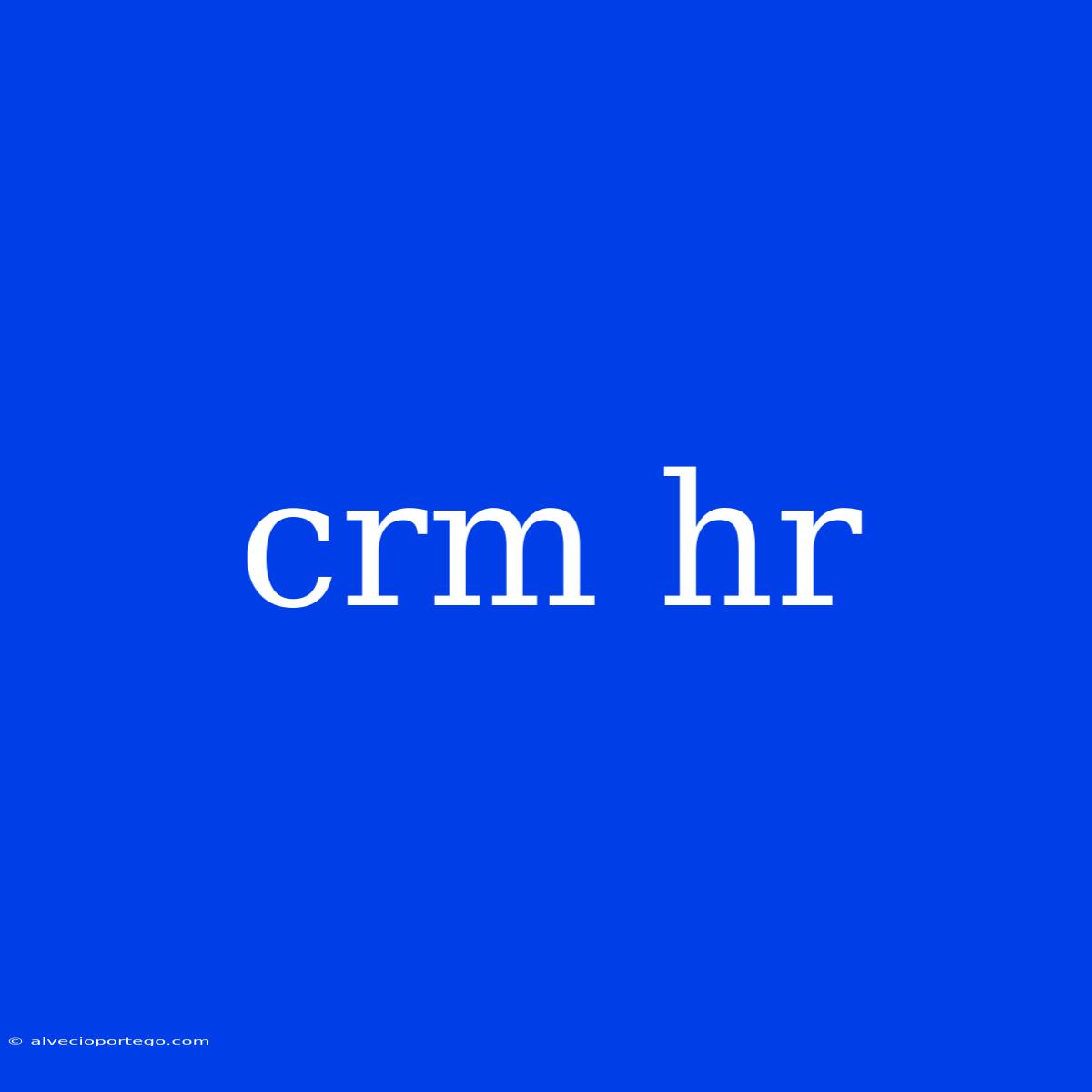CRM for HR: A Powerful Partnership for Success
The world of Human Resources is constantly evolving. Gone are the days of simply managing payroll and benefits. Today, HR professionals are tasked with attracting, developing, and retaining top talent - all while navigating a complex and ever-changing landscape. CRM for HR emerges as a powerful solution to help achieve these goals.
What is CRM for HR?
CRM, short for Customer Relationship Management, is a software system designed to manage interactions with customers. In the context of HR, this means using CRM technology to manage interactions with employees, candidates, **and **other stakeholders within the HR ecosystem.
Why is CRM Important for HR?
Integrating CRM into HR brings numerous benefits, including:
1. Enhanced Talent Acquisition:
- Streamlined candidate management: Track candidate applications, interview notes, and communication history.
- Targeted outreach: Identify and engage with potential candidates based on skills, experience, and interests.
- Automated workflows: Automate tasks like scheduling interviews and sending rejection emails.
2. Improved Employee Engagement:
- Personalized communication: Tailor communication to individual employee needs and preferences.
- Feedback collection and analysis: Gather and analyze employee feedback to identify areas for improvement.
- Performance management: Track employee progress, set goals, and provide constructive feedback.
3. Enhanced Data-Driven Decision Making:
- Centralized data repository: Access real-time data on employee performance, engagement, and talent pipeline.
- Reporting and analytics: Gain insights into employee trends, identify skill gaps, and measure the effectiveness of HR programs.
- Improved decision-making: Utilize data to make informed decisions regarding talent acquisition, development, and retention strategies.
Key Features of CRM for HR:
- Candidate Relationship Management (CRM): Manage candidate profiles, track interactions, and automate outreach.
- Employee Relationship Management (ERM): Enhance employee communication, gather feedback, and track performance.
- Learning Management System (LMS): Deliver training, track progress, and measure the impact of development programs.
- Performance Management System (PMS): Set goals, track progress, and provide feedback for individual employees.
- Talent Acquisition Analytics: Track recruitment metrics, identify talent gaps, and optimize recruitment strategies.
Choosing the Right CRM for HR:
Selecting the right CRM for your organization depends on your specific needs and requirements. Consider factors like:
- Number of employees: Choose a system that can scale to accommodate your growing workforce.
- Industry and specific requirements: Select a CRM with features relevant to your industry and HR functions.
- Budget: Compare pricing plans and choose a system that fits within your budget constraints.
- Integration with other systems: Ensure compatibility with your existing HR software and other business applications.
In Conclusion:
CRM for HR offers a powerful solution for optimizing talent management and maximizing workforce potential. By implementing CRM technology, HR departments can streamline processes, enhance communication, improve employee engagement, and drive strategic decision-making. The future of HR lies in leveraging technology to create a more engaging and productive workforce.

